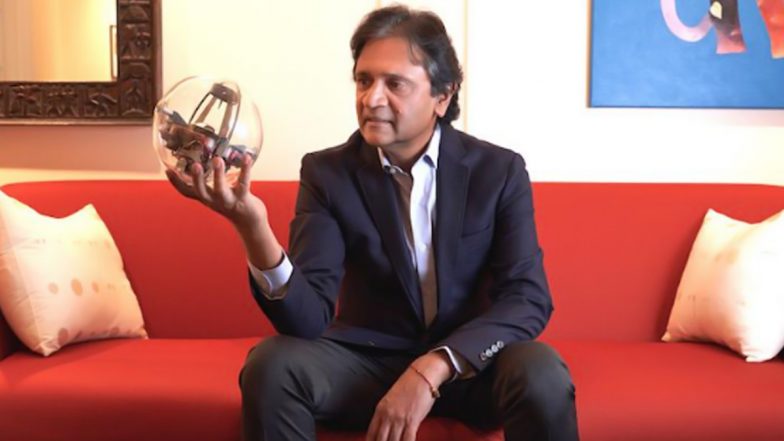New York, December 23 : An Indian-origin Columbia University professor has been awarded Japan’s prestigious Okawa Prize for his seminal work on computer vision and computational imaging.
Shree K. Nayar, the T.C. Chang Professor of Computer Science at Columbia Engineering, is being recognized for “the invention of innovative imaging techniques and their widespread use in digital photography and computer vision”. COVID-19 Treatment: Researchers Using New Tech To Develop Personalised Treatment for Critically Ill Coronavirus Patients.
“I am grateful to the Okawa Foundation for this honor,” said Nayar, who directs Columbia’s Computational Imaging and Vision Laboratory. “Over the last three decades, I have had many close and productive collaborations with Japanese researchers and companies. These have enabled my laboratory to translate our results into imaging technologies that are currently being used in consumer devices and factory automation systems, Nayar said in a statement.
Hailing from Thiruvananthapuram, Nayar heads the Columbia Vision Laboratory (CAVE), which develops advanced computer vision systems. His work is motivated by applications in the fields of digital imaging, computer vision, computer graphics, robotics, and human-computer interfaces. Samsung Galaxy S23 Flagship Smartphone Series May Launch on February 1, 2023.
Nayar’s work has changed the way visual information is captured and used by both machines and humans. In the mid-1990s, he pioneered the field of computational imaging, which combines unconventional optics with advanced image processing algorithms to produce immersive and interactive visual information, a Columbia University statement read.
Nayar’s idea of creating assorted pixels for high-dynamic-range (HDR) imaging has enabled smartphone cameras to leapfrog in terms of the quality of the photos they capture, the University said. It is estimated that more than one billion smartphone users worldwide are using his technology on a daily basis.
Nayar received a BS degree in Electrical Engineering from Birla Institute of Technology, Jharkhand. He has an MS degree in Electrical and Computer Engineering from North Carolina State University, and a PhD degree in Electrical and Computer Engineering from the Robotics Institute at Carnegie Mellon University.
For his research and teaching, Nayar has received several honors, including the David Marr Prize (1990 and 1995), the David and Lucile Packard Fellowship (1992), the National Young Investigator Award (1993), the Carnegie Mellon Alumni Achievement Award (2009), the Helmholtz Prize (2019), and the IEEE PAMI Distinguished Researcher Award (2019).
For his contributions to computer vision and computational imaging, he was elected to the National Academy of Engineering in 2008, the American Academy of Arts and Sciences in 2011, and the National Academy of Inventors in 2014. Nayar will receive the prize at a ceremony to be held in Tokyo, Japan, in March 2023.
Since 1996, the prize, which honors outstanding contributions made to research, technological development, and business in the information and telecommunications fields, is given each year to one Japanese and one international researcher. Before Nayar, two other Indian-origin scientists — Dr Raj Reddy (2004) and Dr J.K. Aggarwal — have won the award.
(The above story first appeared on Morning Tidings on Dec 23, 2022 09:52 AM IST. For more news and updates on politics, world, sports, entertainment and lifestyle, log on to our website morningtidings.com).

Leave a Reply